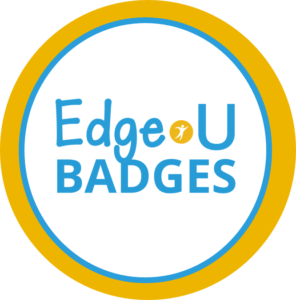Digital Credentialing Programs Bring Tangible Results to Professional Learning
Educational institutions of all types have long had the practice of curating professional development for their staff, both to keep in line with educational standards and provide their staff building blocks to further their careers. From kindergarten, all the way up to higher education levels, professional development is commonly offered throughout the year as a means for educators to develop skill sets, keep knowledge current, pave a path for their careers.
However, while professional development days (PD days) are crucial to development, there have often been issues that arise in delivering content reliably to educators. Such examples might include  inflexibility when scheduling, content not being relevant, not knowing what class options are available, time to complete sessions, and more.
inflexibility when scheduling, content not being relevant, not knowing what class options are available, time to complete sessions, and more.
Perhaps the biggest issue that may arise is that traditional PD days are often a ‘one size fits all’ solution, ‘sit and git’, instead of a catered experience. Even if the scheduling works and the content is cutting edge, the information offered may not be relevant to the educator’s particular teaching style or content area.
Given the above issues, it isn’t surprising that employees were not nearly as engaged as they could be, according to a study conducted by UC Santa Cruz titled “Digital Credentialing for Personal Development Organizations”. The study found over 45.5% disagreed with the sentiment that employees had been engaged with professional development activities, with 4.5% selecting strongly disagree and only 27.3% selecting agree. (Aruck, 2019.)
Enter digital credentialing; A forward-thinking, technology-based solution to a long-standing problem that engages users and facilitates development. Unlike traditional professional development, digital credentials are a real-time program that allows users to learn what is relevant to them when it is relevant to them. Furthermore, digital credentials offer high visibility for earned credentials with the ability to view or track these earned credentials online showing learner progress and clarifying career paths. (Aruck, 2019.)
Often set up under badges or micro-credentialing program, digital credentials take on several forms. Forward Edge’s own badge and micro-credentialing program, Edge•U, is on e such example. By blending the latest in knowledge, content, and information delivery into one seamless program, Edge•U offers educators the ability to maximize their effort and skill set in a meaningful, flexible way. Educators and administrators alike learn the latest technology tools via engaged learning exercises, videos, and classroom implementation plans, all while being aligned to ISTE Standards for Educators, ISTE Standards for Students, the SAMR Model and more!
e such example. By blending the latest in knowledge, content, and information delivery into one seamless program, Edge•U offers educators the ability to maximize their effort and skill set in a meaningful, flexible way. Educators and administrators alike learn the latest technology tools via engaged learning exercises, videos, and classroom implementation plans, all while being aligned to ISTE Standards for Educators, ISTE Standards for Students, the SAMR Model and more!
Badge programs, including Edge•U, have proven to increase the visibility of professional development achievements by educators. What does this mean, though? According to the same study by UC Santa Cruz, “By visibility, we mean that professional development achievements of individual learners are recognized by the learners themselves, peers and colleagues, and employers or administrators both within and outside the organization… Interview respondents agreed or strongly agreed that digital credentialing benefits learners by making their learning achievements more visible and that digital credentialing helps learners get recognition for their professional development achievements.” Moreover, from this same study, when asked if digital credentialing has made it easier to track learner progress, nearly all respondents (95.4%) either agreed or strongly agreed, meaning many found digital credentialing as a valuable way to track and prove their development to employers, peers, and colleagues.
Digital credentials also help quantify all the skills and content that educators engage in while promoting learner’s choice! A large problem with traditional professional development days is that content may not align with what an educator needs to further their career and lift their classroom to a higher level. However digital credentials, according to the report by the Nellie Mae Education Foundation, provide “-a method to formally recognize skills that are important to other consumers…skills that often lie beneath the surface of courses or cut across them and that traditional schooling and professional development methods usually have no formal way to recognize (or even assess).” (Priest, 2016.)
Participants in digital credentialing programs seem to agree with this assessment, as over 54% strongly agreed that “Digital credentialing helps learners get recognition for their professional development achievements.”(Aruck, 2019.) Not only do educators finally get the recognition they deserve, but administration can use these stats to prove return on investment for PD programs.
Digital credentialing makes for an engaged, innovating solution to several long-standing problems within traditional professional development. As noted in a small report by the ICDE Working Group, “Present and Future of Alternative Digital Credentials”, “[Digital credentials] are clearly going to be an important part of the education landscape for the future.”
We think so too. By having former teachers and current technology integration staff build our very own online badging program (Edge•U), educators can learn relevant technology tools anytime, anywhere. This flexibility gives them the ability to earn contact hours and graduate credit while gamifying professional learning. Educators and administrators alike immediately see results with this easily accessible, accredited online curriculum aligned to ISTE Standards for Educators, Students, and the SAMR model.
For a quick overview of Edge•U, or to schedule a full-length demo, click here!
Forward Edge is a full-service K-12 technology service provider in Cincinnati, OH. We offer valuable assistance in Managed Technology Services, such as on-site technicians to assist in all your time-crucial and need-right-now technology needs, along with in-depth network oversight, wireless infrastructure, server management, and much more!
In addition, Forward Edge also offers help developing technology integration skills via our Curriculum and Integration department. By utilizing the ISTE Standards for Coaches, Educators and Students, certifications in Google For Education, and experience with the latest technology, we provide a wide range of services like Professional Development, 1-on-1 Coaching, On-Site Coaching, Bootcamps, Webinars and more, all which deliver big benefits to your team.
Contact Forward Edge today about the variety of services we offer! Learn more about our services via our website, by reaching us via calling (513)761-3343, or sending an email to info@forward-edge.net
References
UC Santa Cruz dept. Of Humanities Report on Digital Credentialing:
https://s3.amazonaws.com/badgelist/files/Digital-Credentialing-for-PD-Orgs.pdf
ICDE working group “Present and Future of Alternative Digital Credentials”:
https://icde.memberclicks.net/assets/ICDE-ADC%20report-January%202019%20%28002%29.pdf
Nellie Mae Education Foundation: “Digital Badging and Micro-Credentialling – Author: Nora Priest”:
https://bostonbeyond.org/wp-content/uploads/2016/06/Digital_Badging_Paper_NMEF.pdf